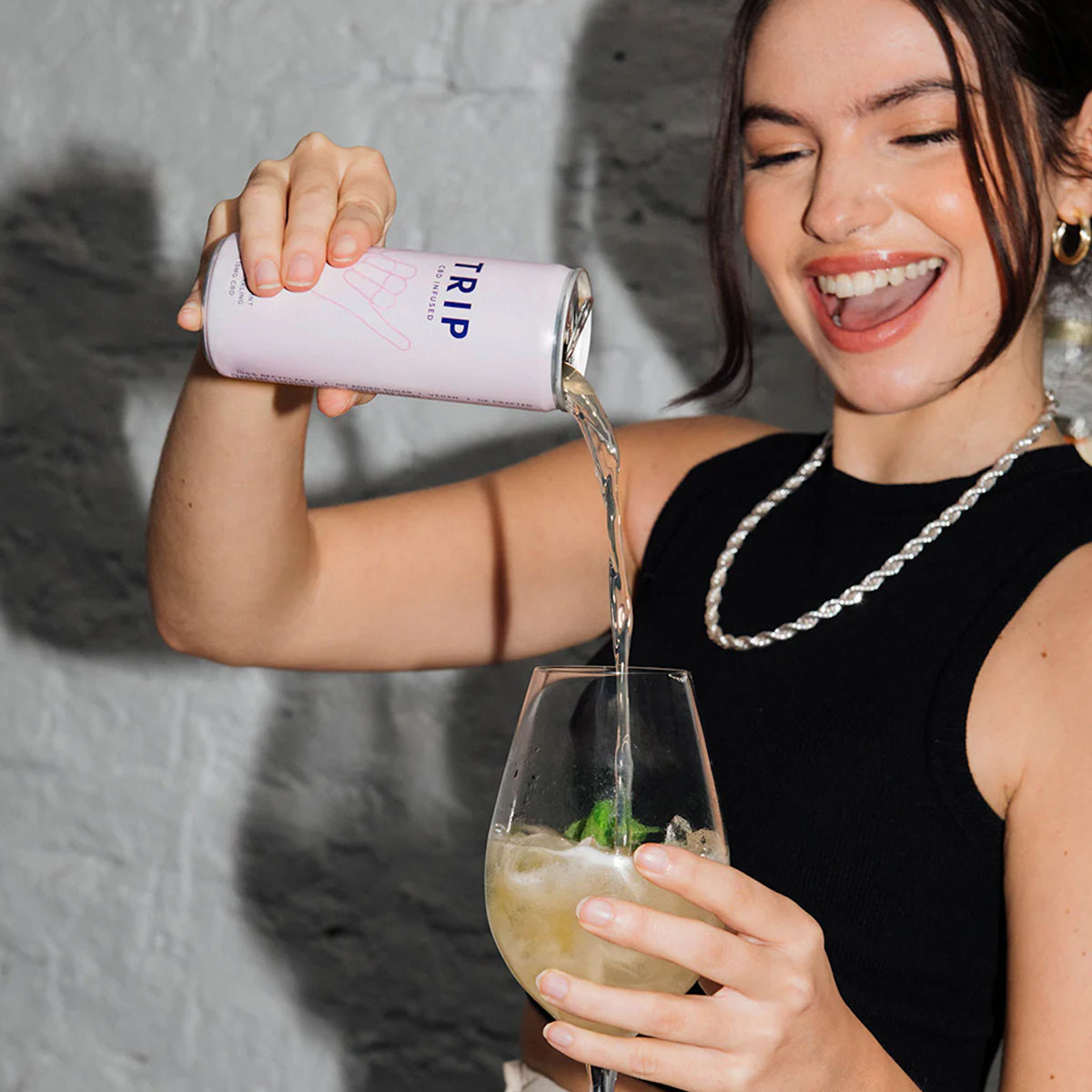
Alcohol is not the only mood-altering substance in the world – and UK hospitality businesses would be well advised to keep an eye on the growing popularity of ‘psychotropic’ relaxation in other first-world economies.
That’s the core message of a new report titled ‘The Future of Socialising: What’s next for the dry economy?’ produced by research-led consultancy KAM Insight, on behalf of ‘dry economy’ business agency High & Dry.
To the fore are the cannabis-derived compounds CBD, which is now legal and widely available in the UK with reputed relaxant effects, and THC, which is still restricted in the UK because of its undisputed psychoactive properties.
Alongside these, the psychedelics, led by psilocybin mushrooms and synthetic LSD, are undergoing a medical reappraisal, and depending on who you ask, are either ‘a boon to psychiatry, a menace to society, or a gateway to another realm’.
What is undeniable is that, thanks to grey-market internet shopping, all of these substances are now freely and cheaply available in the UK.
Pointing out that the UK adult population has an increasing percentage of ‘psychotropic-curious’ consumers just as the younger demographic’s interest in alcohol wanes, High & Dry founder, Daniel Rowntree said that UK businesses could not ignore the shift in both behaviour and legislation already happening in other countries.
“This report is a beginners’ guide to help educate and empower UK businesses by assessing consumer demand, predicting evolution, and understanding the industry. Change is coming,” said Rowntree.
“In the US, thirty-seven states have legalised medicinal cannabis, two states have embraced therapeutic psilocybin, and more substances are on the horizon,” noted Rowntree.
“Switzerland opens its first dispensaries in 2024; Germany opened up its legal cannabis market in April this year; and trials continue in Holland.”
Further, Rowntree pointed out that many of the big alcohol companies had already made investments in cannabis – Molson Coors Brewing Company has partnered with Hydropothecary, a Canadian cannabis producer, to explore opportunities in the non-alcoholic cannabis beverage market; Heineken has launched Hi-Fi Hops, a THC-infused beverage available at select medical marijuana dispensaries in California through its American brand Lagunitas; Pabst Brewing Company has launched Pabst Labs, a subsidiary focused on developing non-alcoholic cannabis-infused beverages; Anheuser-Busch InBev, through its venture capital arm, ZX Ventures, has invested in Tilray, a Canadian cannabis producer; Diageo has entered into a joint venture with Constellation Brands to research and develop cannabis-infused beverages; Bacardi has partnered with Acreage Holdings, a US cannabis company, to develop cannabis-infused beverages; and Beam Suntory has acquired a minority stake in Canopy Growth, the same Canadian cannabis producer that Constellation Brands has invested in.
Against that international background, the report’s domestic research found that nearly one in five UK adults have already tried a CBD infused drink (19.4%), and a further 28% said that they haven’t tried them but would be interested in doing so. Amongst Generation Z respondents, 38% have tried CBD-infused drinks and 10% are consuming them regularly.
Some 40% of respondents also said that their alcohol intake reduces when they take other mood-altering substances.
Despite a small number of CBD brands being available in both the UK off-trade and on-trade, such as TRIP which is now listed in the likes of Sainsbury’s and Stonegate venues, the majority of consumers are purchasing online either from an online marketplace (28%), direct from the brand (26%) or from an online pharmacist (26%).
KAM strategy and insights director, Blake Gladman, said: “The way that Brits are socialising, including their relationship with alcohol, is changing.
“We know from recent research in partnership with Lucky Saint that UK adults are drinking less alcohol, less frequently and that although there are financial drivers, 47% of people say that ‘mental wellness’ is a significant driver for moderating their alcohol intake.
“So, with global alcohol consumption in decline, this research looks at what the future alternatives are likely to be and how they’ll impact the food, drink and hospitality industry and will help businesses navigate this transformative era.”
Rowntree concluded: “We acknowledge that there is a long journey ahead before we see a recreationally legal cannabis market and psychedelics accepted as legal mood-altering substances and used therapeutically to address mental health challenges.
“However, the roadmap created by other countries shows us that change is possible, and we are now on that path. Younger generations are more open to change, while older policymakers hold onto outdated stereotypes.
“This generational divide highlights the urgent need for research and education to fully understand both the benefits and challenges of opening the market.”




















